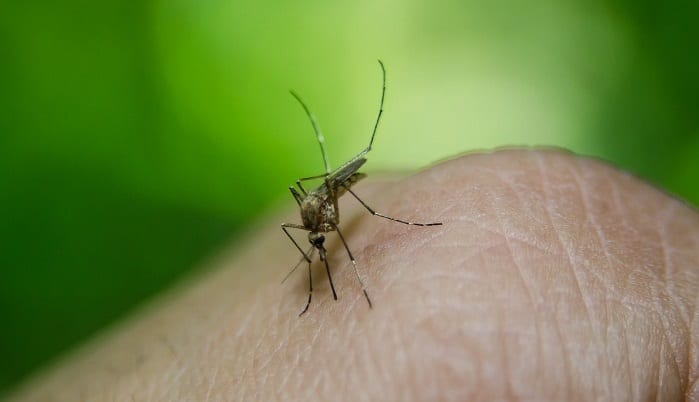Health Archives - Barbados Today
Geriatric hospital to open ‘this year’
The government is on the cusp of completing a purpose-built geriatric hospital, with Senior Minister Dr William Duguid confirming that the project remains firmly on track for completion this year. The facility, intended to revolutionise elderly care, is part of a broader effort to address the needs of the nation’s ageing population.
Providing an update during the closing session of the Estimates debate on Friday, Dr Duguid detailed the significant progress made across various sections of the facility, highlighting that the ambitious project remains on schedule.
“Barbados will have a purpose-built geriatric hospital for its people,” he said. “We are making significant construction progress on this facility, and we are on target to have it completed this year,” he said. “The west wing is moving at pace, with slicking and priming completed on all floors. The first coat of paint is already being applied to the ground and first floors, and the installation of mechanical, electrical, and plumbing systems is nearing completion.”
The new geriatric hospital offers a modern, well-equipped environment tailored to meet the needs of the nation’s ageing population. In March 2023, during a groundbreaking ceremony to officially start construction of the Waterford, St Michael facility, officials announced that the project would be completed in just under two years at a cost of $1.307 million for phase one of the project. No projections were given for the cost of phase two of the three-storey state-of-the-art facility.
During the first phase of construction – the main hospital building – 300 beds and ten lounges were built, along with two treatment rooms per floor, a rehabilitation unit outfitted with a gym and pool for therapeutic services, a daycare facility, staff offices, amenities, and ancillary services. Phase two focused on another 105 bedrooms and six lounges.
He further outlined the advancements in other critical areas of the hospital, noting that exterior lighting and fixtures are being installed, while the administration core is progressing rapidly. “Slicking and priming of walls in the administration section are underway, and preparation for similar work is happening in the south wing. Kitchen drains are being installed, and the final portion of the ground floor slab is being prepared for casting,” he explained. “Construction and plastering of internal block work are ongoing on all floors.”
The minister emphasised that significant strides had also been made on other integral components of the hospital, including the annex, chapel, central plant, and generator building. “In the annex, slicking and priming are ongoing on all floors, while the superstructure and internal block work construction have been completed, with plastering nearing completion. Over at the chapel, the installation of the standing seam roof sheeting is in progress, and the interior finishing is well advanced,” Dr Duguid added.
The mechanical infrastructure, which is crucial to the hospital’s operational efficiency, has also seen notable headway. “The chillers have been placed on the concrete plinths in the chiller yard, with connections being made for chilled water pipes,” he said. “Installation of equipment in the pump room and central plant is progressing at speed. Meanwhile, the generator building’s structure has been completed, and interior and exterior painting is underway.”
Dr Duguid also highlighted key developments in the hospital’s surrounding infrastructure, stating that work on the main road and sidewalks is substantially complete. “We have finished cutting the wall and installing the sidewalk, while work on the internal access road and drainage installation is ongoing. Ninety per cent of the walkway along Waterford Main Road has already been cast, and we are now reinforcing the remaining portion.”
With nearly all trenches for the chilled water pipes dug and connections completed, the minister reaffirmed the government’s commitment to seeing the project through to completion.
(SZB)
The post Geriatric hospital to open ‘this year’ appeared first on Barbados Today.
7 months 3 weeks ago
Health, Local News
Health Archives - Barbados Today
Empowering Our Service Professionals: Breaking Free from Learned Helplessness
“We need fresh ideas! We value your input!” The words echo in meeting rooms across Barbados, often met with a mix of hope and skepticism. Too often, passionate service professionals, our nurses, teachers, police officers, and frontline workers, offer innovative solutions only to be met with resistance: “That’s not how we do things here.” This repeated dismissal breeds learned helplessness, a quiet erosion of initiative that leaves our vital services stagnant and our dedicated professionals burned out. This isn’t just about workplace morale; it’s about the quality of care and service our nation receives.
Barbados thrives on the dedication of its service professionals. From the bustling tourism sector to our essential public services, these individuals are the backbone of our communities. Yet, the very systems they serve within can inadvertently stifle their creativity and problem-solving. While we’re known for our vibrant spirit and “Bajan ingenuity,” too many good ideas remain unspoken, lost to the fear of rocking the boat or being labeled a troublemaker. This silence isn’t golden; it’s costly.
The consequences of learned helplessness are far-reaching. For individuals, it manifests as chronic stress, exhaustion, and burnout. The constant state of alert takes a toll, impacting mental and physical health. For organizations, it means lost innovation, decreased productivity, and high turnover. And for Barbados as a whole, it translates to a decline in the quality of essential services we all rely on.
The good news is that learned helplessness can be overcome. The key lies in fostering a culture of empowerment and providing service professionals with the tools they need to reclaim their agency. This is where self-care coaching, reframed as a strategy for professional development and organizational health, can play a transformative role.
Self-care coaching isn’t about spa days and bubble baths. It’s about equipping individuals with practical skills to:
Challenge Limiting Beliefs: Coaching helps professionals identify and dismantle the negative self-talk that perpetuates learned helplessness. It teaches them to recognize their value and advocate for their ideas effectively. For example, a teacher might learn to confidently propose new teaching methods, even if they deviate from tradition.
Develop Resilience Strategies: Service professionals often face challenging situations and resistance to change. Coaching provides them with strategies to navigate these obstacles, manage stress, and bounce back from setbacks. A nurse, for instance, might learn techniques for managing the emotional toll of demanding shifts while also developing strategies for advocating for better patient care.
Foster Collaboration and Communication: Coaching can facilitate open communication and collaboration within teams. It helps professionals express their concerns constructively, build consensus, and work together to implement positive changes. Imagine a police officer using coaching skills to facilitate community dialogues and build stronger relationships with residents.
Drive Systemic Change: When service professionals feel empowered, they become agents of change within their organizations. They can champion new initiatives, advocate for policy improvements, and create a ripple effect that transforms workplace culture. This could involve a group of firefighters working together to improve safety protocols or a team of tourism workers developing innovative ways to enhance the visitor experience.
To leaders across Barbados: Investing in self-care coaching is not an expense; it’s an investment in the future of our essential services. It’s about creating workplaces where professionals feel valued, supported, and empowered to contribute their best. It’s about building a stronger, more resilient Barbados.
To every service professional: Your well-being matters. Your voice matters. Don’t let learned helplessness silence you. Seek out resources, connect with colleagues, and become an advocate for positive change within your workplace and your community.
Let’s break the cycle of learned helplessness and unleash the full potential of our service professionals. Together, we can build a Barbados where everyone thrives.
The post Empowering Our Service Professionals: Breaking Free from Learned Helplessness appeared first on Barbados Today.
8 months 2 days ago
Health, Local News
Health Archives - Barbados Today
Call for legislation to regulate school vendors amid health concerns
School principals have urged swift action to regulate vendors operating outside school premises, citing concerns over students’ health and the circumvention of nutrition policies.
Robin Douglas, president of the Barbados Association of Principals of Public Secondary Schools (BAPPSS), has called for immediate legislation to address the issue, on the heels of recent reports of suspected psychoactive substance sales to primary school children.
He expressed concern that at present, students can buy what they want from vendors before school in the morning and afterwards in the afternoon and nothing can be done about it.
Using the Schools’ Nutrition Policy and a recent revelation by the National Council on Substance Abuse (NCSA) of the suspected sale of psychoactive substances to primary school children as a reference point, Douglas stressed that while he could not accuse any vendor of criminal activity, there is urgent need for legislation to control what is happening outside the gates of schools.
“There is need for legislation to be rewritten to be able to have something to say to persons outside of the schools’ compound. My school here at Combermere would not be the only problem, this is a problem across all schools, where vendors that are on the outside of the compound, there is nothing that you can do to stop them from being where they are,” the BAPPSS leader told Barbados TODAY.
Acknowledging that the situation poses a challenge to school administrators, Douglas, principal of the Combermere School, suggested that the time may now be right for the call for legislation to be heeded to hasten the legal process.
“The sooner, the better. There is need to heed a strong call that indicates there are major concerns regarding, not just the dietary concerns, but more concerns for the mental and physical health of our children because of the concerns regarding the things that we can’t control,” he said.
“The reality is,” the educational administrator added, “if you have a nutrition policy that is being circumvented by the fact that children can either buy what they want to eat in the morning or just hold their money and buy it when they leave in the evening, then the nutrition policy is being circumvented, and the in-school canteen, they comply with the measures for the nutrition policy, would of course, see a reduced revenue from students who would then buy outside. So it is a difficult situation, and there are not many avenues for school administrators to take.”
Douglas gave an assurance that administrators would not want to deprive anyone of opportunities to make an honest living, but at the same time, he is adamant that school authorities still needed to be more vigilant and watch for any signs of changes in behaviour so they can determine the source.
The BAPPSS president insisted: “I would not be so bold as to suggest that anybody is doing anything criminal. Persons are trying to make a living. However, one of the main difficulties is the way in which it works against the implementation of our nutrition policy.”
He suggested the need for even greater vigilance over what children are consuming in light of the suspected sale of drugs to students.
“There is little that can be done regarding external vending. Without having evidence to suggest that someone is involved in that type of activity, you certainly can’t place that upon persons. It is about vigilance and response given the current concerns that you would have,” Douglas contended.
He said while there is no legal backing to move vendors from outside schools, the only other possible options may be if they are operating from people’s lands without permission or don’t possess health certificates. Vendors can also circumvent these certificates, he explained.
emmanueljoseph@barbadostoday.bb
The post Call for legislation to regulate school vendors amid health concerns appeared first on Barbados Today.
8 months 1 week ago
Health, Local News
Health Archives - Barbados Today
Prostate cancer rates alarm as younger Barbadians at risk
The Barbados Cancer Society (BCS) has sounded the alarm on the increasing incidence of colon cancer in the country, attributing it largely to Barbadians’ current diet.
The Barbados Cancer Society (BCS) has sounded the alarm on the increasing incidence of colon cancer in the country, attributing it largely to Barbadians’ current diet.
This urgent health concern was highlighted during the society’s annual raffle prize-giving ceremony, where campaigners called for immediate action to address the growing crisis.
The Cancer Society president, Professor David Rosin, emphasised the urgent need for dietary improvements to curb the trend.
“The [second] most common cancer [here] is colon cancer [and] it’s probably due to diet,” he explained. “It’s another cancer that is also more commonly passed down through families. Why it is increasing here [however] is because of the diet. Your parents and grandparents ate a much healthier diet with high fibre, lots of breadfruit, etcetera, whereas nowadays, I’m afraid to say, it’s a lot of fast food and food which is low in fibre.
“Really, we have to impress upon people and also the young people in the schools that they should eat healthy.”
The professor also highlighted the prevalence of prostate cancer, with over 300 cases reported annually.
Professor Rosin said: “Here in Barbados, the commonest of cancer is still – despite it being half the population [men] – prostate cancer.
There are in fact 320 new cases every year out of a population of 285 000 people. That is about 45 per cent of all cancers [reported locally]. It’s really something to worry about.
“The anxiety here is not only is it the commonest cancer, but it is also unfortunately more aggressive and occurring in younger men.”
Shelly-Ann Forde, the society’s administrative director, added that recent community outreach efforts have seen rising interest among some men in coming forward for the necessary testing.
She said: “At a recent outreach event sponsored by [the Bureau of] Gender Affairs, we were doing free screenings and we even had to turn back some of the men. We already had the initiative to go out into the community before that, but that kind of reinforced the fact that men do want to be screened, and if there is an opportunity they do come out and try to be screened.”
However, Professor Rosin said the current number of men coming forward remains inadequate and urged families to encourage testing.
He said: “I would ask their wives, sisters, brothers, to come forward and say to them ‘be sensible; go and have a PSA test’. If you can [diagnose] a cancer at the beginning, the treatment is much less aggressive, and you won’t need radical surgery, radiotherapy, chemotherapy, all that. It’s really almost stupid not to be screened.”
During the event, the first-place winners of the 2024 BCS raffle, Raymond and Sheena Gill, represented by Shauntel Rock, received a $25 000 prize. They donated $5 000 of their winnings to the Cancer Society.
The post Prostate cancer rates alarm as younger Barbadians at risk appeared first on Barbados Today.
9 months 4 days ago
Health, Local News
Health Archives - Barbados Today
Disabled community calls for ‘inclusive’ QEH services
Blind and visually impaired persons are urging the Queen Elizabeth Hospital (QEH) to implement audio alerts for medication collection, highlighting a significant accessibility gap in healthcare services.
Their calls come in the wake of repeated challenges members of that community encounter while accessing certain services at the island’s lone public general hospital.
On Thursday, a caller on the radio call-in programme Down to Brass Tacks complained that while audio alert indicators were put in place to accommodate persons with disabilities in at least two of the island’s polyclinics, more could be done at the hospital.
The caller, who identified himself as blind, said: “What I am calling about is something that I experience every time I go to the pharmacy at the QEH and I hoping that the director of the QEH and the minister is listening to me very carefully. I am blind, let me make that clear first. When I go to Winston Scott Polyclinic or the Edgar Cochrane Polyclinic to get medication, there is a device at the pharmacy that tells you the number and you then would go up to the pharmacy and hand in your prescription and get your medication. But what I have observed is that when I got to the eye clinic at the hospital and I have to go and get medication from the pharmacy, they have that same device but it doesn’t talk. So anybody that goes to the pharmacy at the QEH that is blind or visually impaired they have to depend on somebody to tell them when their number is up on the screen. I would like the director of the hospital or the minister to look into that and make sure that they put one of the ones that talk.”
Failing that, the caller suggested that a teller terminal system be set up in which people could pull numbers and an automated audio caller would announce the number.
Vice-president of the Barbados Council for the Disabled, Ambassador Kerry-Ann Ifill, confirmed that her organisation had received numerous complaints about the situation over the years.
Ifill told Barbados TODAY that there were technologies such as vibrating buzzers that could be used.
“They could use the same system that the restaurants are using, the buzzer system, which would make better sense because they flash and vibrate and use them for people who only have disabilities. That way, when you go and you are blind or deaf, nobody would have to tell you when your number [is] called. That is a simple solution and yes, it is a big issue that we face with the hospital,” she said.
Asked how persons with disabilities get around the issue, she said: “With a lot of frustration and there are some good people out there that will tell you your number called or ask you what number you have and monitor it for you. Some nurses also assist but it doesn’t lend to an independent experience.”
Ifill added that people with disabilities wanted to be independent and feel empowered and issues such as this were a major setback.
When contacted, the QEH promised a response to the concerns highlighted, but no statement was provided up to press time. (SZB)
The post Disabled community calls for ‘inclusive’ QEH services appeared first on Barbados Today.
9 months 4 days ago
Health, Local News
Health Archives - Barbados Today
Northern parishes targeted for fogging
The Vector Control Unit will concentrate its fogging exercise in St Lucy and St Peter for most of this week.
On Monday the team will visit communities in St Lucy, including Trent’s Road, Hannays Road, Swampy Town, and Hope Bridge Road.
The Vector Control Unit will concentrate its fogging exercise in St Lucy and St Peter for most of this week.
On Monday the team will visit communities in St Lucy, including Trent’s Road, Hannays Road, Swampy Town, and Hope Bridge Road.
The Unit will focus on areas in St Peter on Tuesday when it goes into Speightstown, Queen Street, Bovell Road, Mango Lane, Chapel Street, Gooding Alley, Major Walk, Sand Street, Church Street, Golden Mile with avenues, and environs.
Wednesday will see the team return to St Lucy, where the following areas will be sprayed: Pie Corner, Little Bay, Upper Salmond, Josey Hill, Rock Hall, Mount View, Chance Hall, Cave Hill, and Bishops.
It will be the turn of Graveyard, The Risk, Date Tree Hill, Boscobelle, Collins, Diamond Corner, Moore Hill, Castle, and Gays in St Peter, on Thursday.
The fogging exercise for the week will conclude on Friday in the following St Michael and Christ Church districts: Deighton Road, Gooding Road, Brathwaite Gap, Dayrells Road, Plum Close, Rockley New Road, Ventnor Gardens, and Golf Club Road.
Fogging takes place from 4:30 to 8:30 p.m. daily. Householders are reminded to open their windows and doors to allow the spray to enter. Children should not be allowed to play in the fog.
Members of the public are advised that the completion of scheduled fogging activities may be affected by events beyond the Unit’s control. In such circumstances, the Unit will return to communities affected in the soonest possible time.
The post Northern parishes targeted for fogging appeared first on Barbados Today.
12 months 3 days ago
Health, Local News
Health Archives - Barbados Today
Fresh health policy drive in bid to tackle NCDs, obesity
The government is banking on a raft of public policy changes in its fight against non-communicable diseases (NCDs) and obesity, including a tax on sugar-sweetened beverages and an upcoming ban on industrially produced trans fats, a forum revealed Thursday.
The government is banking on a raft of public policy changes in its fight against non-communicable diseases (NCDs) and obesity, including a tax on sugar-sweetened beverages and an upcoming ban on industrially produced trans fats, a forum revealed Thursday.
With lifestyle diseases accounting for nearly 80 per cent of deaths in the region, the government said it is addressing the root causes of unhealthy diets and lifestyles, particularly among children.
The policy measures were revealed during a forum, A Conversation on the Right to Health and the Right to Adequate and Nutritious Foods, held in observance of World Food Day on Wednesday. Organised by the Law and Health Research Unit at the University of the West Indies Cave Hill, the Ministry of Health, and the National Non-Communicable Disease Commission, the event brought together health officials, legal experts, economists, and representatives from international organisations such as the Food and Agriculture Organisation (FAO) and the Inter-American Institute for Cooperation on Agriculture (IICA).
In addition to the school nutrition policy, the government introduced a 20 per cent tax on sugar-sweetened beverages to curb the consumption of sugary drinks, a major contributor to obesity and diabetes.
Senior Medical Officer of Health, Dr Arthur Phillips, speaking on the success of the tax, said: “The tax did or was associated with… a decrease in the consumption of sugar-sweetened beverages, [and] an increase in the consumption of water.”
However, he acknowledged that more can be done.
Barbados is now looking to refine its tax structure to further incentivise healthier choices.
“Taxes influence consumption, and this one has worked,” Dr Phillips added.
Another significant initiative is the planned ban on industrially produced trans fats, which are known to increase the risk of cardiovascular diseases. The government is committed to enacting this ban by the end of 2025.
“Industrially produced trans fats significantly increase the risk of negative cardiovascular outcomes,” said Dr Phillips. “We’re working closely with food producers, and we are fortunate in that our major importers, producers, and processors are on board.”
While these policies represent important strides, affordability remains a key challenge. Economist Dr Antonio Alleyne highlighted the issue of high prices for healthy foods, which are often more expensive than ultra-processed alternatives.
“If you look at the taxation when it comes to healthy items compared to unhealthy items, it actually is much higher,” he explained. “With the advent or the advancement of technology, it allows us to produce more ultra-processed foods at a faster pace and at a cheaper pace.”
Dr Alleyne called for a balanced approach to addressing this disparity, suggesting a combination of taxation and other measures to make healthier foods more affordable.
“Unhealthy versus healthy prices are a very big issue…. What was proposed was we take that revenue loss [from reducing taxes on healthy foods] and implement it on the unhealthy items,” he suggested.
Nicole Foster, a lecturer in global health law at UWI, underscored the state’s legal obligation to ensure access to healthy food for its citizens.
“For every human right, there are three basic obligations that the state assumes: an obligation to respect that right, an obligation to protect that right, and an obligation to fulfil that right,” she said.
Foster also highlighted the government’s duty to regulate third-party actions that could harm public health: “Where third parties, including private actors, are carrying out activities which undermine the respective right, it is the obligation of the state to take action to rectify that.”
She further emphasised that while progress may take time, it is crucial to continue moving towards the goal of improving public health.
The post Fresh health policy drive in bid to tackle NCDs, obesity appeared first on Barbados Today.
1 year 1 week ago
Health, Local News
Health Archives - Barbados Today
Major changes aimed at reducing NCDs to be rolled out
The government is set to unveil sweeping changes to the island’s primary healthcare system in a bid to slash rates of non-communicable diseases (NCDs), Minister of Health Senator Jerome Walcott has revealed.
The government is set to unveil sweeping changes to the island’s primary healthcare system in a bid to slash rates of non-communicable diseases (NCDs), Minister of Health Senator Jerome Walcott has revealed.
Speaking at a ceremony honouring Sir Trevor Hassell for his work in NCD education, Walcott announced that the Ministry of Health is on the cusp of rolling out significant reforms aimed at reducing premature adult mortality from lifestyle diseases by a third.
The planned reforms are part of a broader initiative aimed at improving healthcare outcomes by focusing on early detection and prevention, rather than relying on tertiary care.
“I have a personal mandate that we should try to reduce the premature adult mortality from NCDs by a third. It is not impossible, it can be done, and in the course of the next few weeks, you will gradually see a rollout of parts of this process,” he said.
He highlighted that the reforms would include improvements in early prevention and detection systems.
“Everybody is focused on QEH and tertiary healthcare, but the fundamentals of healthcare have to do with primary healthcare – the ability of early prevention, and detection to get better health outcomes. We are looking at that in a project to be discussed soon,” Walcott added.
He also revealed that new screening programmes for various NCDs and cancers would soon be introduced. These include a colonic screening process, initially at two polyclinics, with plans to expand the service later. Additionally, cervical cancer screening and mammography services will be reinstated at the QEH, after having been discontinued in 2008.
“We are looking at the protocols for prostate cancer, recognising the anxiety of men as it comes to testing,” Walcott noted.
Sir Trevor, a former president of the Healthy Caribbean Coalition, welcomed the recognition but stressed the ongoing work needed to combat NCDs. He called for the NCD Commission to take a more active role in policy decisions and to engage the private sector in promoting healthier lifestyles for Barbadians.
He said: “What the commission now needs to do in terms of fostering, facilitating, educating, encouraging [persons] are three fundamental things. Firstly, to assist in what I call the challenging political and policy decisions that need to be made around NCD prevention and treatment. Secondly, the commission is well-positioned to encourage, facilitate, and advocate for the private sector to play a more fundamental role in contributing to NCD prevention and control. Thirdly, yes, there is that role for the commission still to empower the people of Barbados by assisting them in becoming more health literate.”
The post Major changes aimed at reducing NCDs to be rolled out appeared first on Barbados Today.
1 year 1 week ago
Health, Local News
Health Archives - Barbados Today
Walk draws attention to challenges for the blind in Warrens
Over 40 blind and visually impaired individuals walked in the Warrens business area to highlight the challenges they face in the bustling business area.
The walk was organised by the National Disabilities Unit and the National United Society of the Blind Barbados with support from the Bridgetown Lions Club, the Barbados Defence Force, the Barbados Coast Guard and others.
Over 40 blind and visually impaired individuals walked in the Warrens business area to highlight the challenges they face in the bustling business area.
The walk was organised by the National Disabilities Unit and the National United Society of the Blind Barbados with support from the Bridgetown Lions Club, the Barbados Defence Force, the Barbados Coast Guard and others.
It came ahead of White Cane Day which will be celebrated tomorrow. (LG)
The post Walk draws attention to challenges for the blind in Warrens appeared first on Barbados Today.
1 year 1 week ago
Health, Local News
Health Archives - Barbados Today
Fogging exercise in St Thomas and St Michael
The Vector Control Unit will visit various districts in St Thomas and St Michael when it conducts its fogging exercise this week.
The Vector Control Unit will visit various districts in St Thomas and St Michael when it conducts its fogging exercise this week.
On Monday the Unit will make its first stop in St Thomas. It will spray Cane Garden Park with avenues, Cane Garden Crescent, South View, Sugar Mill Drive, Mint Close, Coral Drive, Pearl Drive, Violet Drive, Jackson Main Road, Fosters Gap, and Canewood Road.
The team will visit some areas in St Michael for the remainder of the week.
On Tuesday the Unit will go into Jackson Terrace with avenues, Jackson Tenantry, Rock Hampton Road, and surrounding communities.
The following day it will be the turn of Avenues 1, 2 and 3 Grazettes, Capri Drive, Upper Wavell, Walters Road, Parris Road, Jackman Road, Thompson Road, Goring Land, Nos. 2 and 3 Fairfield, Hurley’s Land, Wood Land, and Fairfield Road.
On Thursday the Unit will target Cadogan Road, St Stephen’s Hill, Nos. 1 and 2 Clevedale Close, Clevedale Road, Black Rock Main Road, Apple Grove, Wavell Avenue, Tamarind Road, Wavell Gardens, Dear’s Land, Yearwood Road, Murray Land, Fairfield Road, and environs.
The fogging exercise for the week will conclude on Friday in Lower Wavell, Nos. 1 and 2 Nightengale Road, Belfield Land, Seclusion Road, Fairfield Road, and Grazettes Main Road.
Fogging takes place from 4:30 to 8:30 p.m. daily. Householders are reminded to open their windows and doors to allow the spray to enter. Children should not be allowed to play in the fog.
Members of the public are advised that the completion of scheduled fogging activities may be affected by events beyond the Unit’s control. In such circumstances, the Unit will return to communities affected in the soonest possible time. (PR)
The post Fogging exercise in St Thomas and St Michael appeared first on Barbados Today.
1 year 1 week ago
Health, Local News









